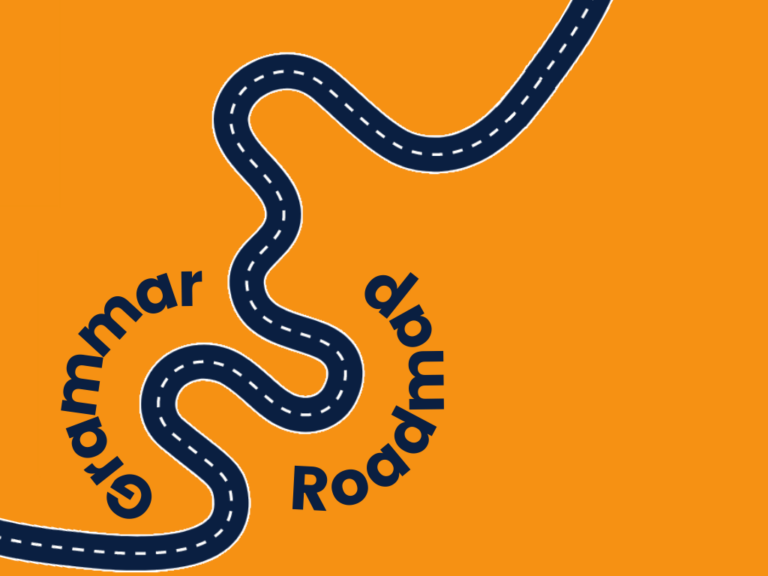
The Conditional Tense Roadmap
Welcome to the Conditional Tense Roadmap! The purpose of this roadmap is to guide you through a methodical process to improve your knowledge of the conditional tense, one step at a time.
No matter which stage of the journey you’re already at, simply follow the steps to learn, develop and excel in your ability to apply grammar rules and exceptions with ease.
KEY:
Present tense grammar is highlighted in red.
Future tense grammar is highlighted in orange.
Past tense grammar is highlighted in yellow.
Conditional tense grammar is highlighted in green.
Imperative mood grammar is highlighted in blue.
Subjunctive mood grammar is highlighted in purple.
Passive voice grammar is highlighted in white











¡VAMOS!
The Grammar Roadmap is a work in progress so please bear with us.
1. Conditional Simple (Condicional Simple):
- Begin by explaining the concept of the conditional simple tense as the equivalent of “would” + base verb in English.
- Introduce regular verb conjugation patterns for -ar, -er, and -ir verbs in the conditional tense.
- Teach the formation of the conditional tense for regular verbs by adding the appropriate endings to the infinitive form of the verb.
- Provide examples of using the conditional simple tense to express hypothetical or speculative actions.
- Practice forming affirmative, negative, and interrogative sentences using regular and irregular verbs in the conditional simple.
2. Conditional Continuous (Condicional Continuo):
- Explain the conditional continuous tense, expressing actions that would be ongoing in a hypothetical situation.
- Form the conditional continuous tense using the conditional tense of the verb “estar” + gerund (-ando/-iendo form of the main verb).
- Discuss actions that would be happening at a particular point in the future under specific conditions.
- Provide examples and exercises to practice using the conditional continuous tense.
3. Conditional Perfect (Condicional Perfecto):
- Introduce the conditional perfect tense, used to express hypothetical actions that would have been completed before another hypothetical event.
- Teach the formation of the conditional perfect tense using the conditional tense of the verb “haber” + past participle of the main verb.
- Provide examples of using the conditional perfect tense to express past hypothetical actions or possibilities.
- Practice using the conditional perfect in affirmative, negative, and interrogative sentences.
4. Conditional Perfect Continuous (Condicional Perfecto Continuo):
- Explain the conditional perfect continuous tense, expressing hypothetical actions that would have been ongoing up to a specified point.
- Form the conditional perfect continuous tense using the conditional tense of the verb “haber” + “estado” + gerund of the main verb.
- Discuss hypothetical actions that would have been ongoing before a specific point in time.
- Provide examples and exercises to practice using the conditional perfect continuous tense.
5. Conditional Simple vs. Conditional Continuous:
- Compare and contrast the conditional simple and conditional continuous tenses to understand when each is used.
- Emphasize that the conditional simple expresses hypothetical actions or requests, while the conditional continuous focuses on ongoing actions.
- Provide examples and exercises to reinforce the use of each tense in different contexts.
6. Conditional Simple vs. Conditional Perfect:
- Differentiate between actions expressed in the conditional simple tense (would + base verb) and actions completed before another hypothetical event (conditional perfect).
- Provide examples and exercises to practice using both tenses to express different hypothetical scenarios.
- Discuss how the conditional perfect is often used to express regret or unfulfilled wishes in the past.
7. Conditional Simple vs. Conditional Perfect Continuous:
- Contrast the conditional simple tense (would + base verb) with actions that would have been ongoing up to a specified point (conditional perfect continuous).
- Provide examples and exercises to practice using the conditional perfect continuous tense in various hypothetical situations.
- Emphasize the continuous nature of actions expressed with the conditional perfect continuous.
8. Expressions of Politeness and Hypothetical Situations:
- Introduce phrases and expressions commonly used in the conditional tense to express politeness, requests, and hypothetical scenarios.
- Practice using the conditional tense in polite requests and hypothetical conversations.
- Explore conditional sentences with “if” clauses to express hypothetical situations.
9. Conditional Subjunctive (Condicional de Subjuntivo):
- Present the concept of the conditional subjunctive mood and its use in expressing hypothetical or improbable actions in a subjunctive context.
- Teach regular and irregular verb conjugations in the conditional subjunctive tense.
- Provide examples to practice using the conditional subjunctive in different hypothetical contexts.
- Highlight the use of the conditional subjunctive in dependent clauses expressing hypothetical or improbable actions.
10. Conditional Subjunctive vs. Conditional Indicative: – Compare and contrast the conditional subjunctive and conditional indicative moods to understand when to use each one in different situations. – Provide examples and exercises to practice distinguishing between hypothetical actions expressed with the subjunctive and indicative moods.
All about the two verbs for “to be” in Spanish: Ser and Estar.
All about the two verbs for “to be” in Spanish: Ser and Estar.
All about the two verbs for “to be” in Spanish: Ser and Estar.
Here we’ll cover not only the regular verbs, but also how to handle
All about the two verbs for “to be” in Spanish: Ser and Estar.
The verb tener and its idiomatic uses
Where to place them, how to choose the right endings and so much more!
The verb tener and its idiomatic uses
Here we’ll cover not only the regular verbs, but also how to handle
Absolutely everything you need to know about nouns for everyone from absolute beginner to advanced expert.
Learn to improve your Spanish using a range of time phrases in a range of different contexts
Absolutely everything you need to know about nouns for everyone from absolute beginner to advanced expert.




